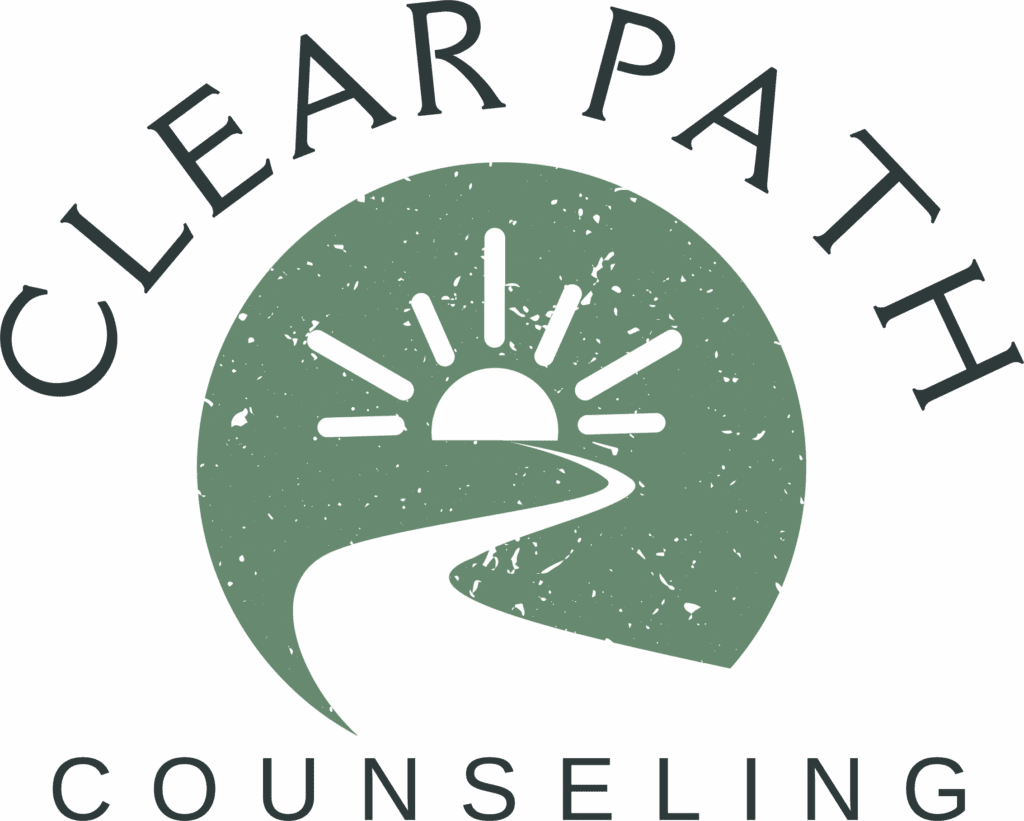Anxiety Therapy
Is Anxiety Controlling Your Life?
- What would it look like to regain control of your thoughts and emotions?
- How would your life be different if you could stop anxiety and panic attacks for good?
- Are you exhausted from constant worry and obsessive thoughts?
- Does your body respond to anxiety with tension, pain, or fatigue?
- Is anxiety impacting your relationships, work, or daily happiness?
If you’re experiencing any of these issues, know that you’re not alone—and you don’t have to face them alone. At Clear Path Counseling, our licensed and experienced therapist is here to help you regain control.
Our Commitment to Evidence-Based Care
Understanding Therapy For Anxiety
What is therapy for anxiety?
Therapy for anxiety is a structured, scientifically-validated approach to understanding, managing, and reducing anxiety symptoms. Research has consistently shown that professional therapy can create lasting positive changes in both mind and body. For those dealing with persistent worry, fear, or physical symptoms like tension and sleeplessness, Anxiety Therapy provides proven tools and techniques based on decades of clinical research.
Our therapeutic approach addresses the full spectrum of anxiety disorders, including:
- Generalized anxiety disorder (GAD)
- Social anxiety disorder
- Panic disorder
- Specific phobias
- Post-traumatic stress disorder (PTSD)
- Obsessive-compulsive disorder (OCD)
Through evidence-based methods such as Cognitive Behavioral Therapy (CBT), we help clients:
- Understand the underlying causes of their anxiety
- Identify and track specific triggers
- Develop personalized coping strategies
- Learn practical relaxation techniques
- Build resilience against future anxiety
What makes our approach effective is the combination of established therapeutic techniques with ongoing assessment and adjustment of treatment strategies. We measure progress using validated clinical tools, ensuring that you’re receiving the most beneficial treatment for your specific situation.
The Importance of therapy for anxiety
Anxiety can affect every aspect of life, from daily functioning and relationships to physical health and overall happiness. Addressing anxiety through therapy is essential because it provides lasting tools to help manage symptoms and restore peace. Therapy doesn’t just target the symptoms of anxiety; it empowers clients to build resilience, cope with stress, and experience life with a renewed sense of calm and control.
Our Therapeutic Approach to Anxiety Treatment
At Clear Path Counseling, our experienced and licensed therapist specializes in helping clients overcome anxiety using a structured, effective approach. Here’s what you can expect from our Anxiety Therapy sessions:
- Personalized Treatment Plans: We create a tailored plan for each client, identifying specific areas of concern and personal goals to ensure that therapy meets their unique needs.
- Active Skill-Building and Homework Assignments: Our therapists provide actionable tools, such as mindfulness exercises, cognitive restructuring, and practical coping strategies. Homework, which can include exercises such as mood logs, practicing relaxation techniques, reinforces progress between sessions.
- Focus on Understanding and Managing Triggers: Anxiety Therapy sessions provide a safe space to identify and understand what triggers your anxiety, allowing you to develop new responses and coping mechanisms.
- Holistic and Structured Support: Our approach integrates Cognitive Behavioral Therapy (CBT) and mindfulness practices to address anxiety from multiple perspectives, helping clients find relief quickly and effectively.
Our therapist’s combination of professional expertise and genuine compassion creates a welcoming space where clients feel empowered to take control of their anxiety and regain balance in their lives.
Symptoms of Anxiety Disorders
While everyone’s experience with anxiety is unique, there are common symptoms that may indicate the need for professional support:
- Constant worry
- Racing thoughts
- Fatigue or lack of sleep
- Loss of appetite
- Feelings of panic, fear, and uneasiness
- Avoidance of certain places, things, or people
- Muscle tension or headaches
- Difficulty concentrating
- Restlessness and irritability
If these symptoms are part of your daily life, Anxiety Therapy can help you find relief and regain control.
When to Seek Professional Help
Consider reaching out for support if you experience:
- Symptoms persisting for more than two weeks
- Interference with daily activities or relationships
- Physical symptoms that cause significant distress
- Difficulty managing symptoms on your own
Anxiety Therapy FAQ
Ready to Take Back Control?
If you’re ready to experience life with less anxiety and more peace, we invite you to schedule a consultation with our licensed therapist. Take the first step today toward a calmer, more fulfilling life. Contact us to learn more.
